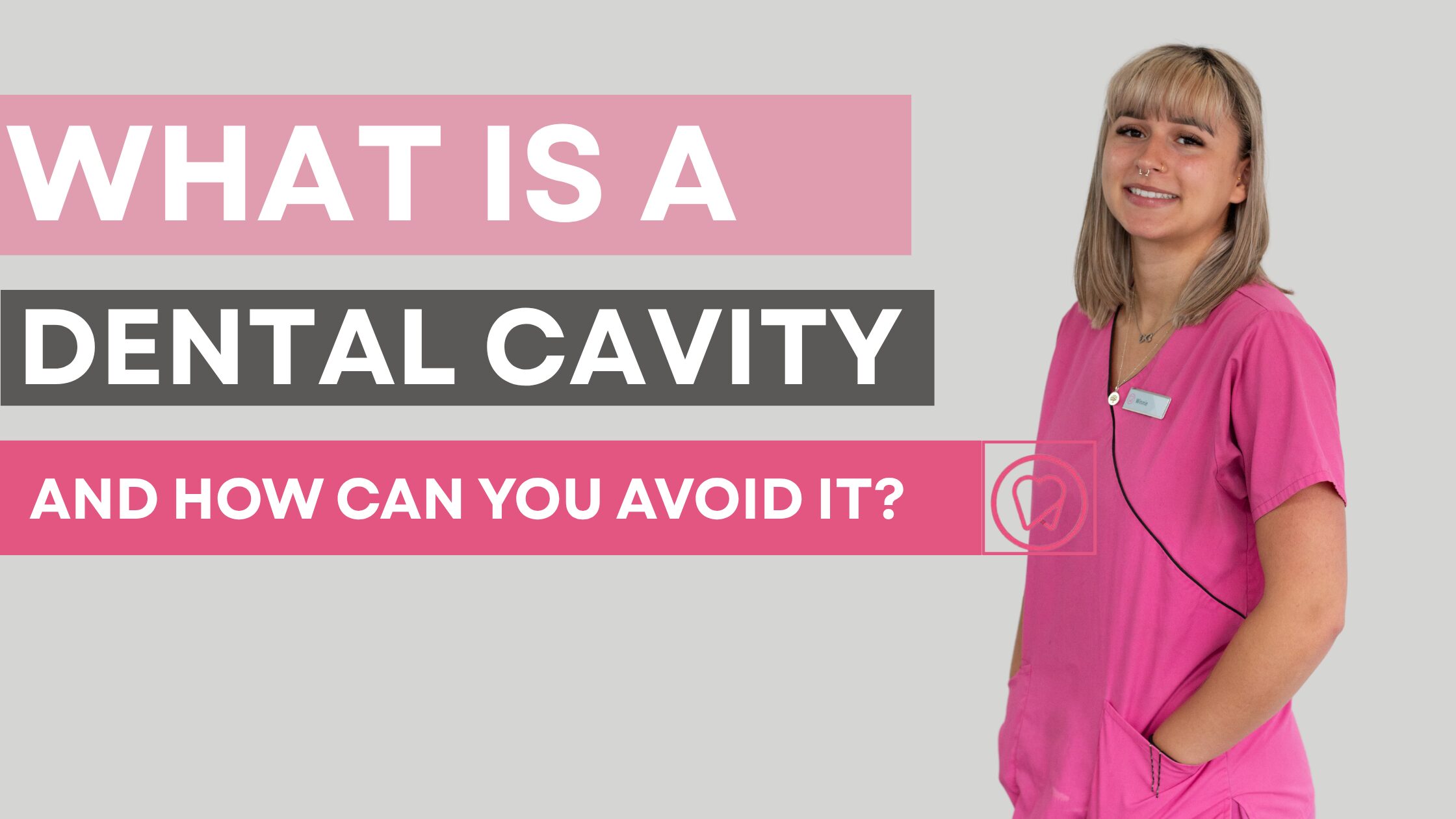What Is a Dental Cavity and How Can You Avoid It?
Cavities are one of the most common dental problems people face and the most common infectious disease, yet many don’t fully understand what they are, what causes them or how to prevent them. Whether you’ve had one in the past or you’re simply looking to protect your smile, understanding the basics of dental cavities can make a big difference to your long-term oral health.
Let’s explore what dental cavities or dental caries really are, how they form, and most importantly, how to avoid them.
Understanding Dental Cavities
A dental cavity, also referred to as tooth decay or dental caries, is a small hole that develops in a tooth. It begins when plaque; a sticky film made up of bacteria and food particles, builds up on the teeth and produces acid. This acid attacks and breaks down the enamel, which is the hard, protective outer layer of your teeth.
Over time, if this erosion continues, the enamel weakens and creates an opening through which bacteria can reach the deeper layers of the tooth, such as the dentin and pulp. The result? Tooth sensitivity, pain, infection, and even tooth loss if left untreated.
At Inspired Dental Care, we see many patients who are surprised by how quickly small amounts of decay can progress when left unaddressed. That’s why early detection and prevention are key.
How Cavities Develop Over Time
Cavities don’t appear overnight. They form gradually through a process that begins with plaque accumulation and inefficient oral health. Every time you eat or drink, especially foods high in sugar or carbohydrates; the bacteria in your mouth feed on those remnants and release acids. If these acids aren’t cleaned away through brushing and flossing, they start to erode the enamel.
At first, this erosion may be completely painless. But as the damage progresses, it can expose the softer dentin beneath the enamel, which contains tiny nerve endings. This is when many people start to experience sensitivity, especially to cold, heat, or sweet foods.
If the cavity continues to grow unchecked, the bacteria can eventually reach the pulp, the soft inner core of the tooth. At this stage, pain can become intense, and a root canal or even tooth extraction may be necessary.
Many patients come to our private dentist clinic believing they only have mild sensitivity, only to find that the decay has progressed further than expected. That’s why we always encourage routine oral health assessments at Inspired Dental Care to catch these issues early.
Spotting the Signs of a Cavity
One of the challenges with cavities is that they often develop silently in the early stages. However, there are several signs that could indicate a problem.
You might notice a lingering toothache or increased sensitivity when consuming hot, cold, or sugary foods. Sometimes, cavities appear as visible holes or dark spots on the surface of the tooth. Discomfort when biting or chewing can also be a red flag.
If any of these symptoms sound familiar, it’s important to visit your dentist promptly. At Inspired Dental Care, our team uses advanced diagnostic tools to detect cavities in their earliest stages, often before they cause pain or visible damage.
Preventing Cavities: Long-Term Oral Health Starts at Home
While cavities are common, the good news is that they are also highly avoidable. Good daily oral hygiene is your first line of defence.
Brushing your teeth at least twice a day with fluoride toothpaste helps to remove plaque and strengthen enamel. Don’t forget to floss as this removes plaque and food particles from between your teeth where your toothbrush can’t reach.
A balanced diet also plays a crucial role. Reducing your intake of sugary snacks and drinks can significantly lower your risk of developing decay. Drinking plenty of water, especially fluoridated water, helps rinse away bacteria and food debris, while encouraging natural saliva production.
Alongside home care, regular visits to your dentist are essential. At Inspired Dental Care, we will be able to assess your risk of decay and recommend the frequency you should visit our clinicians for assessments and professional cleanings. These visits allow us to monitor your oral health closely and provide preventive treatments like fluoride varnishes or dental sealants when needed.
Some patients benefit from additional support, especially if they have a history of cavities or underlying conditions such as dry mouth. We tailor our advice and treatments to your individual needs, ensuring your teeth stay strong and healthy.
Why Early Treatment Matters
If left untreated, a small cavity can evolve into a much larger dental issue. The decay can spread deeper into the tooth, causing infections, abscesses, and potentially leading to tooth loss. Early treatment is typically simple, such as a small filling. Waiting too long could mean more complex and costly procedures like root canals or crowns.
Visiting a trusted private dentist can help you avoid these complications. At Inspired Dental Care, we take a proactive approach to your oral health, combining preventative care with personalised treatment plans to keep your smile at its best.
Final Thoughts
Dental cavities may be common, but they don’t have to be a part of your life. With proper care, regular check-ups, and a little education, you can keep tooth decay at bay.
Taking action today, whether that means improving your brushing routine, cutting back on sugar, or booking a dental visit, can save you discomfort, time, and money down the road.
If you’re looking for friendly, professional dental support, Inspired Dental Care is here to help. Our experienced team is dedicated to helping patients maintain strong, healthy teeth in a relaxed, welcoming environment.
Protect your smile today and enjoy the long-term benefits of excellent oral health with Inspired Dental Care.



